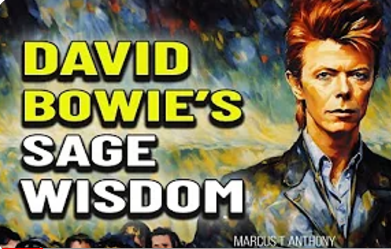Two days ago our beautiful and beloved Bengal cat, Baxi, went missing. My wife and I adopted Baxi 18 months ago, on a trip to Beijing, and brought him back to Zhuhai, in south China. We fell in love with this magnificent creature, with his emerald green eyes, incredible athleticism and sharp intelligence.

Up till about three months ago, Baxi had almost never been outside the walls of an apartment. The first six months of his life were spent with another family in their multi-storied apartment building in Beijing, and the following year in a similar situation at our place on the 11th floor in Zhuhai. Then five months ago, we moved to our current ground-floor apartment in the beautiful Spanish Castle compound here in Zhuhai. It is a sprawling arrangement of nearly 100 apartment buildings, set amidst waterways and expansive greenery. There is a little courtyard out the back of our apartment, so we let Baxi out there, and he loved being outside and in the sun, chasing the odd butterfly or mosquito that foolishly wandered in.
But it was easy to see that Baxi wanted to run freely outside upon the green lawns, to wander through the many scattered gardens and amongst the shrubs and trees. He made this pretty clear. He would stand tall on his hind legs, and try to prise open the latch on the metal grilled gate. We put a net over the gate so Baxi couldn’t get out, but the net permitted full view of the lush playground outside, a pure haven for a huge kitty like Baxi, with his Bengal leopard cat genes. So after resisting for some time, we finally opened the gate and let him and our other two smaller cats outside, where they ran and frolicked, chasing butterfies and each other with gay abandon. At first we kept a close eye on them, but because they always came back to the apartment, we soon let up and let them wander freely for long periods.

Recently my wife decided to begin letting them out in the evening. We had to chase them back after and hour or so, but they never wandered too far away. Then two nights ago Baxi didn’t come back. My wife was frantic with worry, as she loves Baxi as dearly as her own child. We spent a couple of hours wandering around the huge compound (remember, almost 100 buildings) calling Baxi’s name. At 11.00pm, I told my wife I had to go the bed, as I had to get up early to work. She said she would continue to search for the cat.
I went to the bedroom, but felt guilty. I couldn’t just let Baxi amble around, lost. He might wander out onto the nearby road. Or perhaps he’d already fallen into one of the many open spaces that plummet to the underground car park below Spanish Castle. Perhaps he’d eaten something rotten and was ill. Or maybe, given that he is a such a beautiful cat, someone had captured him.
So I decided to meditate. For years I’ve used meditation and light trance states to help resolve personal issues, and sometimes to find lost objects like credit cards or my phone. But in recent times I have gotten out of the habit of doing so. But this was a desperate situation. So I sat on the bed, closed my eyes and allowed myself to fall into a deeply relaxed state by breathing into my my body. Then I let go, allowing myself to bring Baxi’s image to mind. The process I use isn’t easy to describe, but in essence I allow the boundary between myself and the “object” to collapse. I also ask for “help” from the universe, because I believe that we are all embedded within an integrated intelligence.
Within a minute the words “the front garden” pop into my mind. Now, I’d already scoured the garden in front of our house, so that wasn’t a good enough lead. So I shifted my focus. In my mind’s eye, I brought forth an image of our apartment building, seen from a bird’s-eye perspective, from above. What I “saw” was very fuzzy. It was dark, just as if looking at the building at night time. Then I allowed myself to “feel” the areas around the building. The area behind the apartment felt “empty.” Then I shifted to the left-hand side, and it too felt “wrong.” Then I shifted to the right-hand side. It felt “warm.” Open. Then, as I moved my attention to that side of the image, I saw the walking paths around the building appear as fuzzy dark lines. But the path leading away from the front right-hand side of the building were thickest, as if being emphasised. In the image that line was at about 2 o’clock, and at the end, that dark line split into a fork, one other line at about 2 o’clock, the other at just before 3 o’clock. I had a strong sense that Baxi was somewhere near that fork.
This all took about two minutes of meditation time.
Of course I didn’t “know” whether the meditation session was anything more than fanciful imagination, and I was tired. But I decided to trust the information. After all, I’d been using similar mental processes for thirty years. So I stepped outside out the front of the house, followed the right-hand path to the end, crossed the traversing path, and moved to the other side of the “fork.” I stopped for a moment, because I had to choose which of the two paths to follow. The more right-hand path felt warmer, so I walked across and forward about five metres, stopped and called “Baxi!” There immediately came two “meows” from the low bushes of the garden outside the apartment to my left. The pitch of the meows was a lot higher than I associate for Baxi (more like that of a kitten). And there are probably 30 wild cats in Spanish Castle compound, so my immediate thought was that it was another smaller cat. But there was a rustling of the bushes, so I shone my iPhone torchlight in that direction. It was pretty dark, but saw immediately there was a dark cat there, siting literally two metres away from me at the dege of the bushes. I stepped over for a closer look. Sure enough, it was Baxi. He looked a bit scared and lost, and at first didn’t seem to recognise me. But I quickly grabbed him, and took big fellow home. All in all, it had been about two minutes since I walked out the door.
I rang my wife and told her I’d found her beloved. She was at the far side of the compound, still looking for Baxi. She hurried back, deeply relieved. I handed Baxi to her, and she hugged him as we sat down on the sofa. “Where was he? How did you find him?” she asked. I told her precisely how I’d located him. She just looked perplexed for a moment, then hugged the magnificent cat in her arms.
* * *
Where is human intelligence actually located? The established position, either explicit or implicit, has been that it lies in the brain. More specifically, it is the prefrontal cortex that gifts human beings with the incredible capacity for abstract and rational thinking, as well as the scientific enquiry which has enabled us to advance technologically at an incredible rate over the past few centuries.
As the machine and digital ages have unfolded, we came to assume that the brain functions much like a computer: inputs and outputs, hardwiring to hang it all together. Of course, these images are often used metaphorically, not literally. But their pervasive deployment indicates how we have come to frame the concept of “the mind.” Mind and the brain are the same thing, and fundamentally “cognitive” in nature. It then follows logically that human intelligence functions according to the mechanical presuppositions which that model entails.
The truth is that this story is but partial. Just as Newtonian physics is accurately descriptive of the cosmos in a fairly clunky way, the machine mind is a model which works but crudely. But as long as the vehicle gets us from point A to point B, who cares if it’s a bit rickety? Well, I believe that it does matter, and it matters a lot. For the mind-as-computer metaphor is retarding human intelligence. I hope that I don’t need to spell out the great irony in that.
Yesterday I made a keynote presentation at the 8th International Conference on Humanities & Social Sciences Research here in China. The gathering was shifted online from its real world location in Chongqing, for reasons I don’t need to elaborate upon. The talk I gave was entitled “A Critical Futures Studies Perspective on Sensemaking & Embodiment in the Digital Society.” My prime argument was that we need to ensure that future human virtual environments permit healthy “embodiment,” or human intelligence & authenticity may be gravely damaged.
The basis of my argument is founded upon a multi-layered model of human cognition which I call Integrated Intelligence. The following diagram depicts those layers.

I am not suggesting that the mind functions in neat layers like this. Perhaps a better image would show a diffuse, blurry image with hazy boundaries indicating the entanglement of all six layers. But for the sake of simplicity, I use this image.
The essence of the model is that the conscious mind (or brain) exists in relationship with the other five layers. The body contains a myriad of sensors which feed information to the brain in a never-ending stream (mostly unconscious). The psyche is the world of dreams and intuitions, our subconscious; as described by the depth psychologists and introspective traditions throughout history. Now, in the twenty-first century our intelligence can no longer be separated from the information streams embedded within the worldwide web, while the Internet of Things means that the objects we interact with are also connected to that information sysyem. But it doesn’t end there. The recently burgeoning science of cognitive synchronisation has revealed that our minds exist in deep relationship with others, our communities and with nature. Finally, there is a century of experimental research which is indicates that our minds are entangled with other people, places and times at a non-local level. This suggests that the ancient and more modern introspective traditions have long been correct that consciousness is entangled with nature and cosmos.
All this (and especially the final point) challenges the foundations of existing dominant models of human intelligence. And even if we exclude the non-local mind, we have to concede that it’s time for a radical shift in how we view intelligence. For centuries we have laboured under and essentially mechanistic model of mind and nature, and it is crippling our innate intelligence and wisdom. Most tellingly, it is obfuscating the genuine nature of life and consciousness itself and clouding our capacity to realise who we truly are, both individually, and as a species. It is time to begin to question more deeply our genuine relationship with nature and the cosmos. And more importantly, to begin to live a new story.
Marcus T Anthony’s latest book is Power and Presence: Reclaiming Your Authentic Self in a Digitized World.






